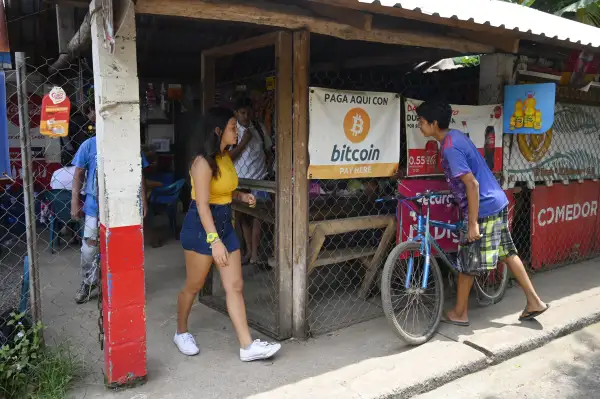What Making Bitcoin an Official National Currency Means for El Salvador
Money is not a client of any investment adviser featured on this page. The information provided on this page is for educational purposes only and is not intended as investment advice. Money does not offer advisory services.

Today is historic day for El Salvador — and for Bitcoin.
On September 7, El Salvador became the first country in the world to recognize Bitcoin as an official national currency, alongside the U.S. dollar. People in the Central American country will be able to use the cryptocurrency as legal tender in a wide range of exchanges. Residents can pay their taxes with Bitcoin, and stores and businesses can accept Bitcoin as payment and list prices for goods and services in the cryptocurrency.
What's more, to nudge people into embracing Bitcoin, El Salvador is offering residents $30 worth of the cryptocurrency for downloading a digital wallet app called Chivo — which is slang for "cool."
Created in 2009, Bitcoin is the world's best-known digital currency, or cryptocurrency. Bitcoins can be bought and sold on exchanges and held in virtual wallets. The value of Bitcoin and other cryptocurrencies can vary to a much greater degree than traditional currencies — one unit of Bitcoin is worth around $51,000 now, versus $10,000 a year ago — so they make for highly volatile and not particularly safe investments. Select businesses like Tesla, Microsoft and Overstock allow customers to use Bitcoin as payment. But spending Bitcoin is often complicated because, among other reasons, it's hard to pinpoint an exact price due to the speculative, volatile nature of digital currencies.
So the act of one country officially recognizing Bitcoin as legal tender could be a very momentous occasion. In June, El Salvador President Nayib Bukele sent what's known as the "Bitcoin Law" to the nation's Legislative Assembly, which voted to approve the measure and enact it in September.
The law holds that "the exchange rate between Bitcoin and the US dollar will be freely set by the market," that "all prices may be expressed in bitcoin," and that "tax contributions may be paid in bitcoin."
It also states that "exchanges in bitcoin will not be subject to capital gains tax like any legal tender." In other words, when someone sells bitcoin or uses it to pay for goods or services in El Salvador, the individual will not have to pay taxes on the gains made between the time the crypto was acquired and used — assuming the value increased over that span. In the U.S. and other countries, people must pay capital gains taxes on such transactions. Finance experts expect more foreign money to flow into El Salvador as crypto investors seek ways to avoid having to pay capital gains taxes.
No one really knows how the adoption of Bitcoin in El Salvador will play out for the country, or for cryptocurrencies in general. But right away, it wasn't smooth sailing.
Reuters reported on Tuesday morning that the country's government had temporarily unplugged the Chivo digital wallet because the servers could not keep up with the demand, and that anyone trying to download the app and get their $30 worth of free bitcoin would have to wait until there was a fix.
UPDATE: On the same day that Bitcoin became accepted as legal tender in El Salvador, prices for the cryptocurrency dropped sharply. By the afternoon of September 7, Bitcoin was down roughly 10% for the day.
More from Money:
What Is Bitcoin and How Does It Work?
How to Use Bitcoin: A Complete Guide to What You Can (and Cannot) Buy With the Cryptocurrency
Is Bitcoin a Safe Investment? What You Need to Know About Hackers, Ransomware and Market Volatility
